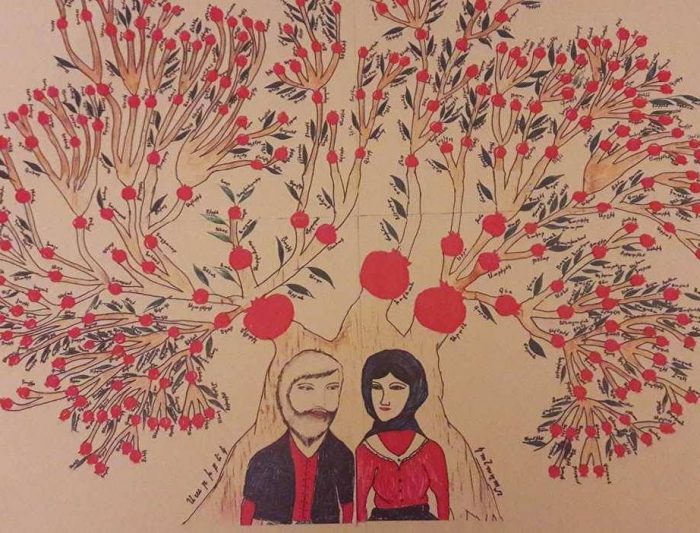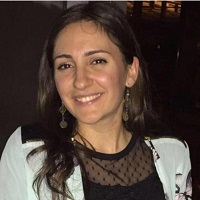The first time I thought of having a DNA test was when I watched this incredibly heartwarming video.
A test was conducted on a diverse group of people and the results were stunningly unexpected.
“Where are you from?” is a question we all ask often in our social settings. Sometimes, it reflects a genuine interest in knowing someone’s cultural background, but some other times, it’s simply to confine people to a box and satisfy our need to judge and stereotype. When asked, people typically mention the country in which they were born.
But is that it? Do we really come from one place only? Could it be that we’re mistakenly narrowing down our treasure to merely one pearl?
A DNA test could prove us wrong, just like it did for me. Here are the four lessons I learned after I saw my own test results:
1. We are more diverse than we think.
When people ask me where I come from, my answer is simple: “I come from Lebanon.”
Never in my life had I questioned the truthfulness of my answer or suspected that it’s almost 50 percent wrong. According to my DNA test results, I’m only 52 percent Middle Eastern. Almost half of me has origins elsewhere, despite having a passport that states otherwise. When I learned I had ancestors in Europe and the Caucasus, I realized how little I know about myself.
A thirst for knowledge about who I am hit me hard. I suddenly saw the cracks in my own story and I knew that it was my duty to fill the void. While we’re taught to recognize and appreciate diversity around us, we’ve failed to recognize the one inside us. Our souls are lands full of flowers that are yet to bloom. We all have an inner spring that’s waiting to bring a whole garden out of us.
2. Our natural identity can help us attain justice.
Nationality and ethnic origin are the backbone of our identity. Put together, they can spring up a bonfire of judgments and discriminatory behaviors.
For example as Middle Easterners, we’re often judged against a history of autocracy, violence, and poor governance. Mainstream media has succeeded in portraying a distorted image of the Middle East, imbued by war, terrorism, conservatism, and corruption. Everywhere we go, people’s throat-cutting looks remind us of who we are.
After seeing my results, I realized how shortsighted we are in the way we define our identity. We not only disregard our natural making, we’re incognizant of its shape and form. We even built systems that, in turn, are oblivious to nature. How come I’m partly European but need a visa for every country in Europe? Isn’t it unfair?
Perhaps if we start showing a DNA card instead of an identity card, and perhaps when this card shows origins in Italy, Greece, Armenia, Azerbaijan, Georgia, Iran, Iraq, Syria, Turkey, Lebanon, and others, people would start looking at us differently. Perhaps then, humans would be more equal and systems fairer.
3. We are more interconnected than we think.
“We are like islands in the sea, separate on the surface but connected in the deep.” ~ William James
If I draw a circle around my place of birth, it’d be no more than a dot. However, if I factor in my DNA story, we’d be looking at a whole constellation.
When I first looked at my DNA map, I felt my heart expanding, as if I’d accidentally spilled pots of paint in a river and the colors began to flow together seamlessly. My results showed that I have over 1,000 fourth cousins. We probably all do! Can you imagine how many natural ties we all have? Perhaps our family tree is not a tree after all, but a forest. And perhaps we’re not strangers to each other as we think, but family.
4. We are responsible for what we transmit to future generations.
Many of our ancestors made mistakes and committed crimes in the name of love, God, and honor. These horrors are still with us today like birthmarks. We think we’re born to live one story—our own—but in reality, we carry millions of others.
For example, we still suffer the consequences of the two world wars, even though many of us were not alive when they happened. We not only inherit our forefathers’ genes, we also inherit their reputation and unpaid debts toward humanity. Our past is written in our chromosomes, no matter how fast we run away from it. Pride, prejudice, ego, and many other emotional soldiers fight their way through us constantly. In the same way we inherit the past, we also pass on our stories to the future. Today, as we write history, we must be aware of how big our responsibility is, to ensure future generations don’t pay for what we’re doing. And when we do, we can then be longing for a better future.
DNA testing could be one way (among many) to bring us closer to each other.
Today’s nations are fighting for a clearer, sharper, and more distinctive identity. Divisions within and across nations are increasing. We think that by intensifying the lines of demarcations, alienating immigrants, and building walls, we preserve and protect ourselves from “the other.” But in reality, we’re fighting a fundamental need we all share: the need to bond and connect.
It’s true, we created a virtual world to plaster our social and emotional wound; the bleeding might have stopped, but the wound got bigger. We’re fighting for uniqueness while secretly longing for togetherness. We judge, discriminate, and fight our differences, but at the end of the day, our fight is against no one but ourselves.
~









Read 1 comment and reply